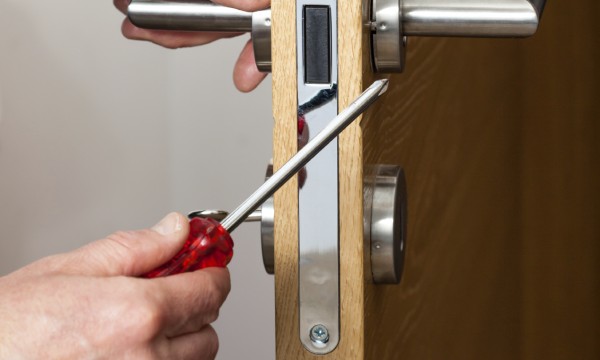When faced with the question of whether to rekey or replace locks, the decision ultimately comes down to cost. Rekeying a lock involves changing the internal pins of the lock, rendering any existing keys useless and requiring a new set of keys to be made.
On the other hand, replacing a lock means removing the entire lock mechanism and installing a brand new one. Both options have their own advantages and drawbacks, but it all boils down to which is more cost-effective in the long run.
In this article, we will delve into a cost analysis to help you determine whether it is cheaper to rekey or replace locks in various scenarios.
Cost Comparison: Rekeying vs. Replacing Locks

When it comes to the cost comparison between rekeying and replacing locks, there are several factors to consider. Rekeying a lock involves changing the internal pins and springs to work with a new key, which can be a more affordable option than replacing the entire lock.
On the other hand, replacing locks entirely may be necessary if the current locks are damaged or outdated. The cost of rekeying a lock can range from $50 to $150 per lock, while replacing a lock can range from $75 to $200 or more per lock, depending on the type and quality of the lock.
It is important to weigh the costs and benefits of each option based on your specific needs and budget.
Tips for Making the Right Decision: Rekeying or Replacing Locks

When determining whether to rekey or replace locks, there are several factors to consider before making a decision. Firstly, consider the condition of the existing lock.
If the lock is in good condition and is still secure, rekeying may be a more cost-effective option. Rekeying involves changing the pins inside the lock so that a new key will work, without replacing the entire lock.
On the other hand, if the lock is damaged or outdated, it may be necessary to replace the entire lock for better security. Additionally, consider the number of locks that need to be rekeyed or replaced.
Rekeying multiple locks may be more economical than replacing each one individually. Ultimately, the decision between rekeying and replacing locks should be based on the condition of the lock, the level of security needed, and the cost considerations.
Determining the Most Cost-Effective Option

Determining the most cost-effective option when it comes to rekeying or replacing locks involves careful consideration of various factors. Rekeying locks is generally a more affordable option compared to completely replacing them, as it only involves changing the internal pins and springs of the lock cylinder.
However, there are situations where replacing the locks may be more economical in the long run, such as in cases where the locks are old or damaged beyond repair. Additionally, upgrading to more secure locks may provide better long-term value and peace of mind.
Ultimately, the decision between rekeying and replacing locks should be based on a cost analysis that takes into account the specific needs and circumstances of the situation.
Conclusion
In conclusion, when it comes to deciding whether to rekey or replace locks, the cost analysis is a crucial factor to consider. Rekeying locks can be a more cost-effective option if the existing locks are in good condition and security needs are met with new keys.
However, if the locks are damaged or outdated, replacing them might be a more practical long-term solution. To make an informed decision, it is essential to assess the condition of the locks, the level of security required, and the overall cost involved.
It is advisable to consult with a professional locksmith, such as those at https://kluchgrad.ru/zamena-zamkov/, to get expert advice on the best course of action for your specific situation. Ultimately, the choice between rekeying and replacing locks will depend on individual circumstances and budget considerations.


